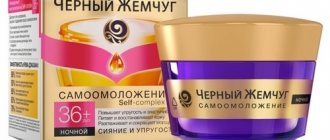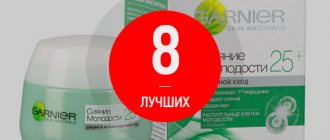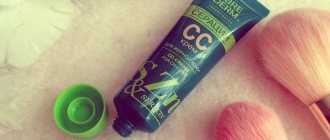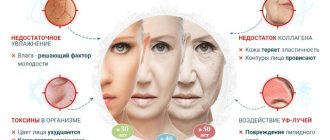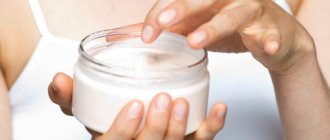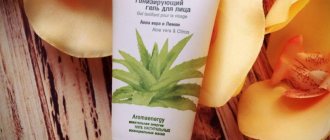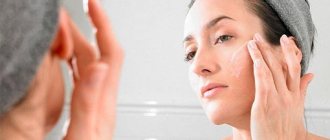Buying a nourishing cream seems easy enough when you write it down on your to-do list. There are face and body creams, as well as lotions or ointments for dry, sensitive, light or dark skin. Add in anti-aging ingredients and sunscreens and the confusion just grows.
So how do you know which nourishing cream is best for you? Use these no-nonsense strategies from top dermatologists to help you choose the right nourishing cream to give your skin the healthy glow you're looking for.
We have compiled a list of the top 10 nourishing face creams to help you out.
Composition of nourishing face cream
How to choose a nourishing cream for people with oily skin
Although oily skin means you can retain moisture better than some other skin types, you are still susceptible to cold, harsh weather, or wind and dry environments during the warmer months. You'll probably want to avoid oils (like coconut oil) to minimize that "heavy" feeling and shine. Oily skin types are perfect for oil-free nourishing products containing hyaluronic acid and glycerin. Consider the best creams for oily skin.
How to choose a nourishing cream for people with dry skin
Those of us with conditions like eczema are more prone to very dry skin, but sometimes it's not enough to just apply a few layers of nourishing cream throughout the day. Lotions and moisturizers containing shea butter, jojoba oil, or coconut oil work well. If you are not a fan of this composition, try oil-based nourishing creams. For really dry skin, we recommend looking for urea, lactic acid, hyaluronic acid, dimethicone, lanolin, or mineral oil in the ingredient label. Read a review of the best creams for dry skin.
How to choose a nourishing cream for people with sensitive skin
Truly sensitive skin has weakened immune function, as do those who suffer from eczema and psoriasis. This means they are more easily irritated by certain ingredients and scents (even those that labels claim to be “natural”) in a moisturizer. Unscented, hypoallergenic moisturizers that contain aloe or chamomile are amazing. Avoid anti-aging ingredients such as retinoids, alpha hydroxy acid (AHA) and beta hydroxy acid.
How to choose a nourishing cream for people with normal skin
If your skin is not too oily or too dry, you have a normal skin type and are the envy of people with other skin types. Keep your nourishing cream neutral, light and non-greasy. Most nourishing products designed for normal skin contain light oils or silicone-based ingredients, such as cyclomethicone.
How to choose a nourishing cream for people with combination skin
Combination skin refers to the normal skin type around your cheeks, but with an oily forehead and the area along your nose, also known as the T-zone. You probably don't need extra moisturizer along your T-zone, but we recommend using a heavy-duty nourishing cream for other areas like your cheeks, chin, and sides of your jaw. Use simple, neutral and light nutritional products.
Peculiarities
- Nutrients typically contain natural oils such as olive, argan, rose, almond, shea and macadamia nut.
- Many nourishing products are applied not only to the face, but also to the skin around the eyes, neck and décolleté. On the cheeks, massage lines run from the wings of the nose and corners of the mouth to the ears, and along the chin up along the contours of the lower jaw.
- Before applying the cream, it is important to first cleanse the skin well, if necessary, treat it with tonic and apply serum.
- It is advisable to use the cream an hour before going to bed or leaving the house.
- The cream should be distributed over the selected areas in a thin layer, without dipping your fingers into the product packaging.
- Now a few words about which components in the composition should be avoided.
- Vaseline, parabens, mineral oil and dimethicone lead to clogging of pores, disrupt local metabolism, and block the access of oxygen to cells.
- Alcohol, kaolin, glycerin and aluminum silicate excessively draw moisture from the epidermis.
- Oxybenzene and propylene glycol, artificial fragrances and dyes can provoke an allergic reaction.
- Benzocaine, talc and sorbitan isostearate are toxic to the skin.
- Albumin provokes earlier aging and aggravates existing wrinkles.
Benefits of using nourishing facial cream
Dry skin is one that lacks oil or water. You will know that you have dry skin.
When your skin looks a little dull, has visible fine lines and is just constantly tight. You've probably noticed more dryness in the winter, when the climate generally becomes completely dry. Even if you have the perfect face wash routine, environmental factors like low humidity and blasting heat can still wreak havoc on your skin.
In extreme cases, dry skin can lead to cracking and bleeding, itching and cause some bad breakouts. They are typically associated with skin conditions, the most common of which are eczema and psoriasis.
The nourishing cream retains moisture in the skin all day long by containing water and using oil to absorb existing moisture. The Russian Academy of Dermatology recommends applying a nourishing cream immediately after washing your face and patting it dry.
Moisturizers can usually be found in the form of lotion, oil, ointment, or cream. Just like you did with your facial cleanser, choose your nourishing cream based on your skin type. You'll know if a moisturizer meets your needs almost immediately. A nourishing cream that is not suited to your skin type will usually leave your skin dry. Find out about the best facial moisturizers in this article.
Does hydration always equal nutrition?
Many girls mistakenly assume that a facial moisturizer solves several problems at once, and nutrition is one of them. In fact, both of these concepts are completely different in scope and principle of action on skin cells.
Hydration is the regulation of moisture levels in skin cells, control of water-lipid metabolism, and nutrition is the saturation of the skin with beneficial microelements, fats and antioxidants (you can read how they act on skin lightening here). Also, a moisturizing cream contains more water, while a nourishing cream contains fats of plant or animal origin.
How to choose a nourishing face cream?
Choosing a nourishing cream is a must, no matter what kind of skin you have - oily, dry or a combination of both.
If you have itchy or dry skin, you'll probably want to lock in moisture with a thick ointment. Creams are thinner, help moisturize and are good for normal skin. Lotions are the lightest (water is their main ingredient) and are good for oily skin.
Base the thickness of your moisturizer on when and where you use it on your face. Consider night face creams and day face creams.
Florida dermatologist Andrea Cambio, MD, says, “Choose a light moisturizer for daytime and a heavier cream for nighttime.”
You can also use a more nourishing face cream and a light moisturizing lotion in the summer. Stick to lighter, more moisturizing products during the summer months.
Storage conditions and shelf life
Unopened creams are stored for about 3 years. Opened packaging should be used within a year. Under no circumstances should you use an expired product to avoid disastrous consequences. The best place for storage is a closed cabinet. Cosmetics prefer dry, cool conditions without exposure to sunlight. This helps preserve all useful microelements for a long time. Therefore, storage in the bathroom, as some women prefer, is not the best option. Under the influence of moisture and temperature changes, there is a high probability of bacteria appearing in the cream. On hot summer days, it is better to store the products in the refrigerator. Due to increased heat, cosmetic products can deteriorate much faster.
Top 10 best nourishing creams for facial skin
Nourishing cream for dry skin Aevit
This weightless formula combats dehydration and flaky skin problems without leaving an oily residue. The formula contains azulene and allantoin to help soothe skin, vitamin E to fight environmental damage, and vitamin B5 to nourish your skin.
pros
- Non-GMO ingredients
- No sulfates, dyes or synthetic colors
Minuses
- Expensive
- Slightly greasy than most moisturizers
Nourishing face cream for winter Neutrogena
Review of Neutrogena Hydro Boost nourishing cream
Neutrogena Hydro Boost Water Gel hydrates skin without leaving any residue or shine. It contains hyaluronic acid, which is naturally present in your skin and helps in restoring your skin's structure and increasing firmness. It contains olive oil extracts that protect and nourish your skin without making it greasy. Find out the Top 5 best hyaluronic acid creams.
Nourishing night face cream Libriderm Aevit
The formula helps restore your skin's moisture balance, absorbs excess oil and leaves you with an oil-free glow. Glacier glycoprotein in this prevents water loss, desert plant extracts help with long-lasting hydration, while vitamin E fights free radical damage.
pros
- Long lasting hydration
- No parabens
- No synthetic ingredients
Nourishing face cream AVENE Creme Nutritive
Created on the basis of healing thermal water AVEN and saturated with basic nutritional and moisturizing components, the cream compensates for the hydrolipid deficiency of dry, sensitive or aging skin, is quickly absorbed, makes the skin softer and creates a feeling of absolute comfort.
Nourishing face cream after 50 years Olay Regenerist Whip
Reviews of Olay Regenerist Whip nourishing cream
Olay Regenerist Whip uses breakthrough technology that turns the cream into a liquid when it touches your skin to spread, absorb and leave you shine-free. This nourishing cream contains Amino Peptide Complex II, making it an excellent anti-aging product. It improves elasticity, reduces the appearance of fine lines and wrinkles, and leaves you with a youthful glow. Consider the best wrinkle creams and effective anti-aging creams.
pros
- Weightless
- Gives a matte look
- Anti-aging cream
Minuses
- Contains silicones
Korean nourishing face cream Alba Botanica aloe and green tea
Alba Botanica Oil-Free nourishes your skin. Aloe soothes your skin, while green tea and gotu kola are antioxidants that repair and protect your skin.
pros
- Low-fat
- Natural remedy
- No artificial fragrances or parabens
Minuses
- Overwhelming smell
Aasha Herbals Rich Nourishing Face Cream
Cream for sensitive skin is a necessary product for the delicate care of dry, chapped and irritated skin. Just such a product is a face cream for sensitive skin called Moisturizing Face Cream with Aloe Vera from Aasha Herbals. Aloe face cream is a composition of Shea butter, aloe vera extract and vitamin E. This day cream stimulates collagen production and ensures firmness and elasticity of the skin. Aloe Vera face cream softens burnt or chapped skin, soothes it, relieves irritation, and also cleanses the skin, relieves inflammation, and cleanses pores. Aloe face cream is suitable for all skin types, but is especially recommended for dry and sensitive skin prone to rashes.
pros
- Smells great
- Great for sensitive skin
Minuses
- May cause irritation to some people
Himalaya Herbals Moisturizing and Nourishing Face Cream
Himalaya Herbals Oil-Free Radiance Gel Cream is a lightweight, non-sticky, gel-like cream that gives you a radiant glow by absorbing excess oil. Barbary fig extracts contain polysaccharides that help with hydration. Winter melon acts as an antioxidant, protecting your skin from free radical damage and nourishing it.
pros
- Hypoallergic
- Dermatologist tested
- Inexpensive
Minuses
- Not very good under makeup
Nourishing cream gel for face after 30 years Clinique
Clinique Moisturizing Gel combines nourishing skin while fighting acne and excess oil. It's lightweight, spreads quickly and leaves you with a radiant glow.
pros
- Dermatologist tested
- Free of fragrances and parabens
- Non-allergenic
Minuses
- Can be greasy over makeup
- Needs application throughout the day
Nourishing cream gel for face after 30 years Kora Phytocosmetics
Reviews
Infused with mineral algae, the cream is formulated to help and stimulate skin renewal overnight. The lightweight formula seeps into the skin and absorbs excess oil, leaving you with glowing skin in the morning.
pros
- Smells great
- Without cruelty
- Easy
Nourishing face cream plays a big role in any skin care. Hence, you need to stop picking things randomly from the shelves and be mindful of what is happening on your face.
Tips for choosing
- It is recommended to choose a nourishing cream based on its composition. Its effectiveness directly depends on the combination of main and auxiliary ingredients. It is assumed that your skin really needs nutrition, since this cream has a thick, sometimes slightly oily texture.
- The content of argan oil in the cream is welcome. It has a positive effect on turgor, slows down fading, and helps to even out the natural tone.
- Sea buckthorn oil has a powerful anti-inflammatory effect, activates the synthesis of elastin and collagen, evens out microcirculation, and makes capillary walls stable.
- Vitamin D neutralizes burning, peeling and irritation of the skin, increases turgor, has an anti-inflammatory effect, and resists aging.
- Vitamin E accelerates cell renewal, smoothes the skin, and promotes regenerative processes.
- Collagen is responsible for the elasticity and firmness of the dermis and has a general nourishing and anti-aging effect.
- Hyaluronic acid nourishes, moisturizes, stimulates the production of elastin and collagen.
- Vitamin A exfoliates, fights wrinkles and pigmentation, brightens, promotes the production of elastin and collagen.
- Vitamin C manifests itself as a strong antioxidant, thanks to which the skin becomes velvety and elastic, the face becomes smooth, and pigmentation is reduced.
- Arachidonic acid slows down aging, prevents the formation of blood clots, and fights all kinds of skin diseases.
- Elastin is responsible for smoothing out skin irregularities, ensuring healing, and replenishing tissue elasticity.
- Shea butter penetrates deeply into the dermis, saturates, moisturizes, provides elasticity and restores tissue.
Let's talk about them:
- Hyaluronic acid. Undoubtedly, a nourishing cream without this substance will not be effective. Acid is able to resume cellular metabolism, restore the epidermis, saturating it with collagen.
- Collagen. Of course, this component is also important. It helps restore collagen levels, which are poorly produced after 35 years, and also smoothes out fine wrinkles, making your skin firm and elastic.
- Vitamin A. An optional element, but its presence will help the skin cope with cell regeneration and renewal.
- Vitamin E is also optional. However, it has a protective effect and protects the skin from ultraviolet radiation. There will be no pigment spots on your face from it.
- Vitamin C. Many cosmetologists say that it is useless. But still, without this vitamin, normal collagen synthesis is impossible.
- Fruit acids. These are the ingredients that help cope with peeling and soften the skin. Unique creams with antibacterial and anti-inflammatory effects are created based on citrus and other fruits. The results from products with fruit acids will be noticeable immediately after the first use.
- SPF filters. They will help protect your face from exposure to sunlight. The minimum level of protection recommended by cosmetologists is 20. By protecting your skin from ultraviolet radiation, you prolong its youth.
Creams may also contain harmful or useless components, although cosmetologists assure us that there is nothing bad in modern cosmetics.

